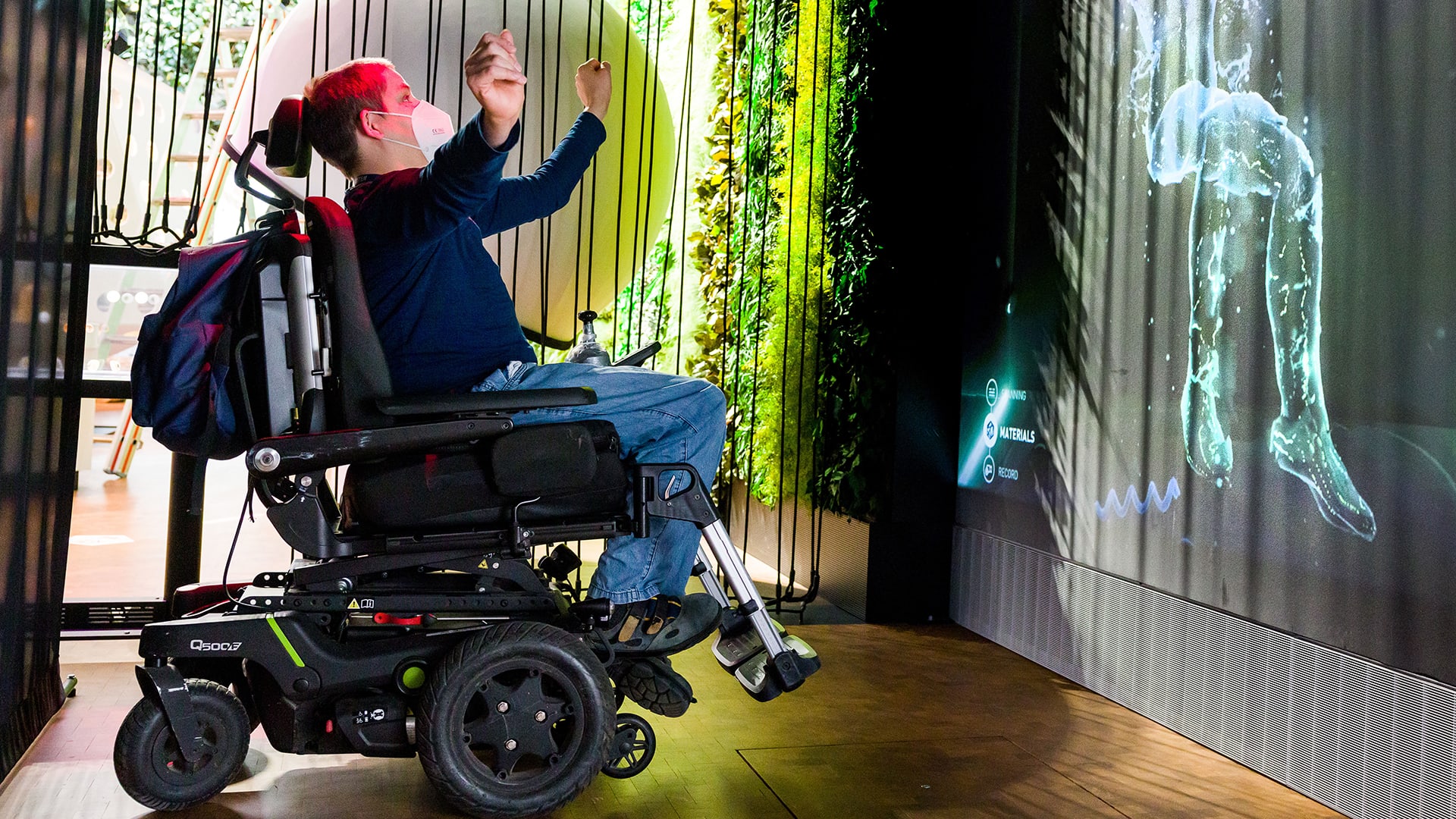A step on a flight of stairs, a text or an announcement over loudspeaker. People with physical and mental impairment still encounter numerous obstacles everyday. The International Day of Persons with Disabilities on December 3 is designed to raise awareness that we still have a long way to go before our world can be considered fully inclusive and accessible. Inclusion only works when it is lived. experimenta wants to do its part and thus has designated an inclusion team that is constantly working to adapt the science center to the needs of people with disabilities – regardless of they are blind or hearing impaired, seated in a wheelchair or have some form of cognitive impairment.
The team consists of 15 members from various sections who meet regularly to discuss and initiate appropriate measures. They are supported in their efforts by an advisory committee on inclusion composed of members both with and without disabilities. “With the committee’s help we are able to work on our offerings and improve them for people with disabilities,” explains Yvonne Bierbaum of the inclusion team. Ultimately, those with first-hand experience are best able to assess where there is still room for improvement.
The team began its work two years ago and has since introduced several changes. There is a special rod, for example, that is used to extend the arm’s reach, making interactive stations more accessible and easier to operate. For visitors with impaired vision, a haptic map is available for the exhibition area. Interactive stations have also been converted for wheelchair access. In the Experimental Kitchen, there is now a sink that can easily be used by wheelchair users.
The science center also intends to make lab courses even more flexible and open. Instructors of inclusive classes can address their queries to LaborkurseFuerAlle@experimenta.science. Courses can be adapted to meet the classes’ respective needs. Together with Lebenshilfe Bremen, the inclusion team has also edited the digital information found at interactive stations in the exhibition. People with cognitive impairment will soon also be able to access explanatory texts in easy-to-understand language.
Visitors who would like more information on experimenta’s inclusive and accessible offerings or simply wish to ask a question or comment can write to the inclusion team at inklusion@experimenta.science. “We welcome all feedback,” says Yvonne Bierbaum. After all, the promise that anyone can embark on a personal journey of discovery at experimenta applies to all visitors.
